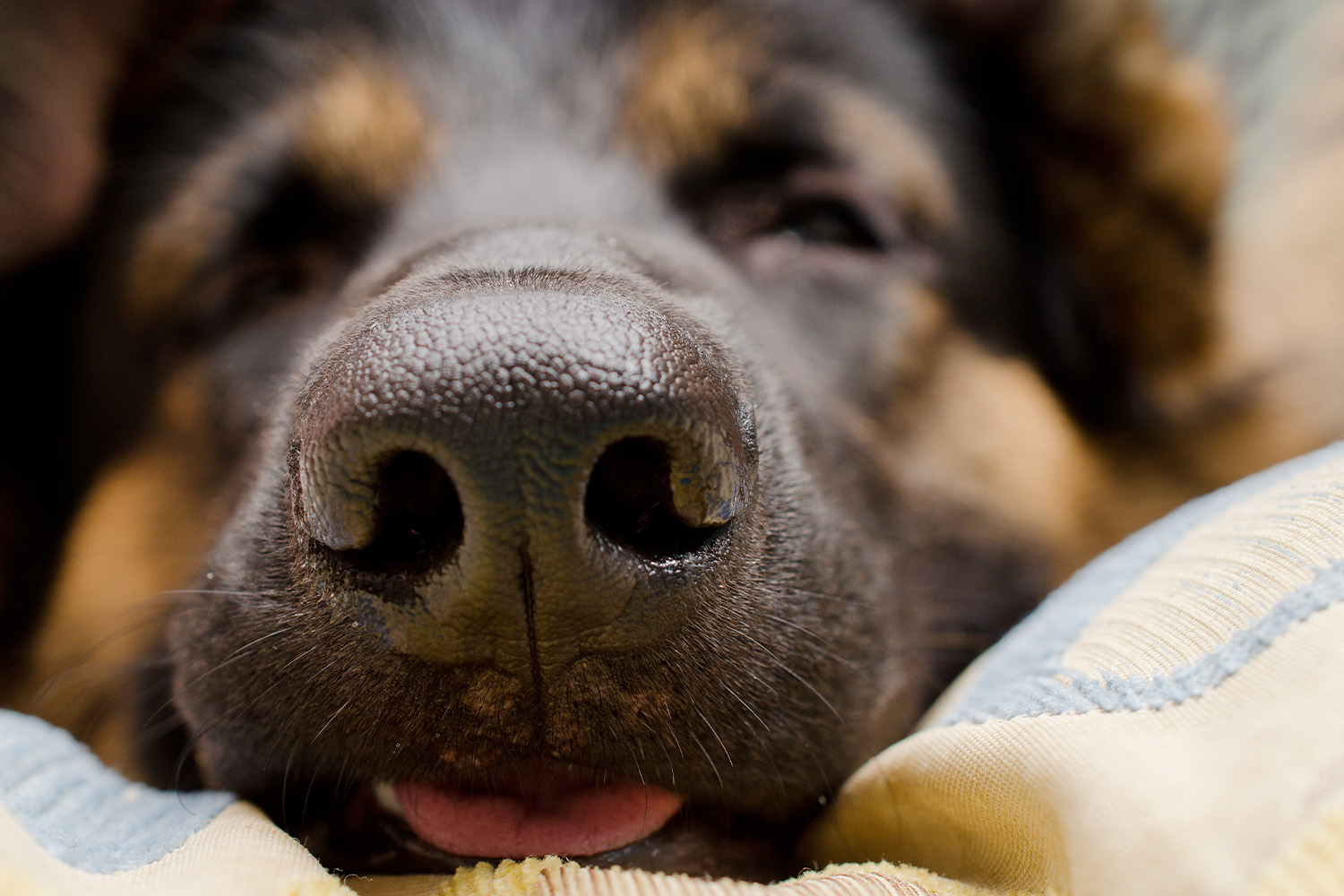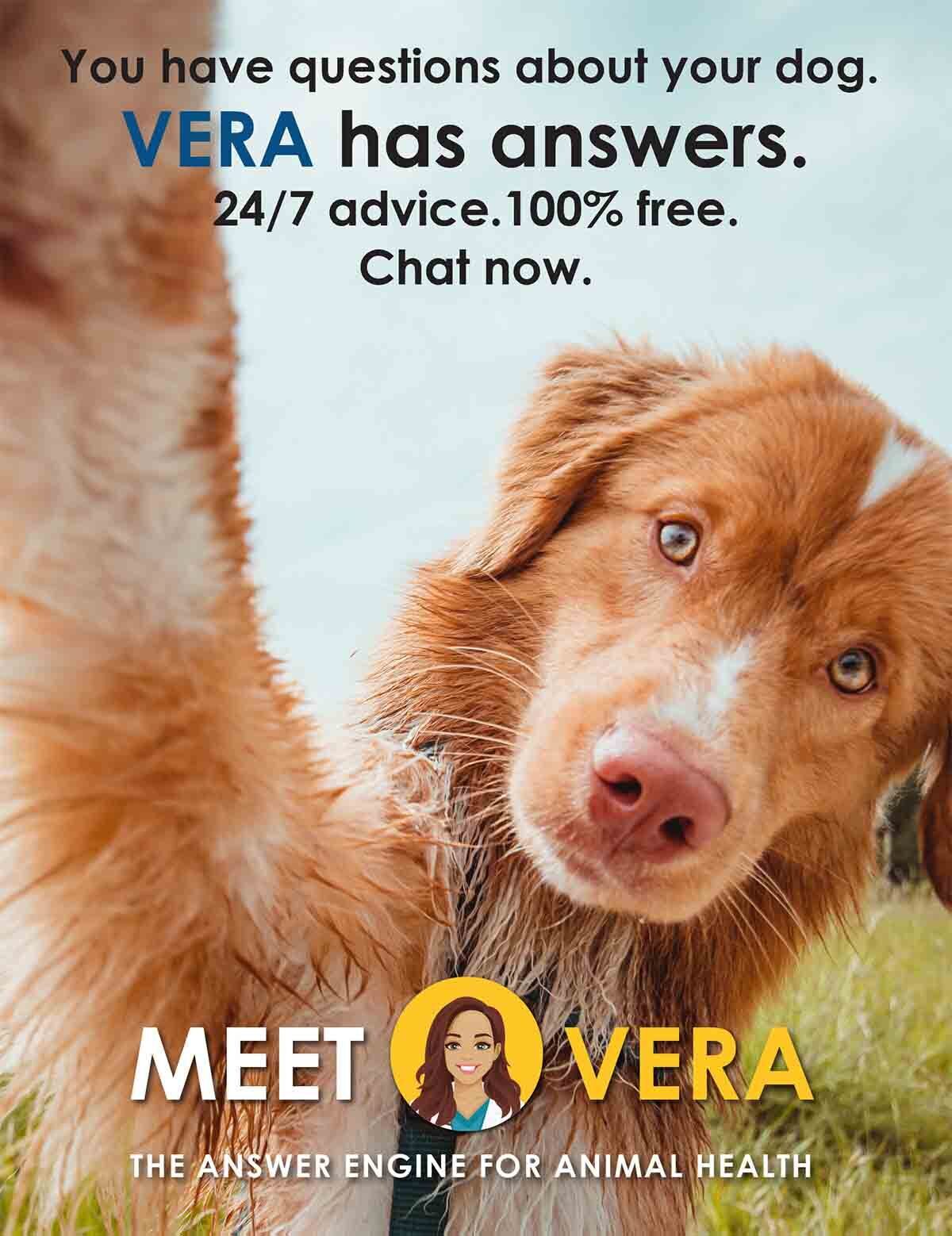Bumping into a dog’s wet nose isn’t always the most pleasant of feelings, especially when it feels colder than your body temperature. On the other hand, some people love a pup’s wet nose and are constantly booping them as they walk by, and we don’t blame you for that!
There are different reasons for your dog’s nose to be wet, so it’s important to feel it every once in a while to make sure they are healthy and happy. If you’re wondering what it means when your dog’s nose is wet, keep reading:
Is a Wet Nose Normal?
All dogs are different, which means that the wetness of your dog’s nose may vary depending on a few factors. A wet nose is quite common and normal for dogs — especially for dogs that are up and about, moving around the house, exercising, and playing. When a dog is lying down calmly or sleeping, their noses might become more dry and warm.
Wet noses will help a dog pick up scents as particles will stick to their noses more easily. This is very useful to dogs because their sense of smell is one of their most important senses. A dog can determine a lot about their surroundings based on smell; it’s essential that they have access to this sense.
How Do Dogs’ Noses Get Wet?
A dog’s nose can become wet due to several reasons, all of which help them in the long run and are generally normal. If your dog is out and about all day, they might have gotten into wet grass, dipped their nose into their water bottle, or found some moist dirt to stick their face into.
All of these things can contribute to a wet nose; here are some more details:
Saliva
You’ve likely seen your dog lick their noses from time to time, and this can cause them to retain some moisture and feel wet. This is a habit that your dog might have to get a sense of what has recently been on their nose (and to do a little cleanup).
The scent particles carried into the mouth through the mucus from your dog’s nose activate the function of the Jacobson organ, which is responsible for semiochemical signal detection.
If your dog is a smart cookie, they will actively keep their nose wet so that they don’t miss out on any new information that comes by.
Mucus Secretion
Another reason for a wet nose is because of the mucus that dogs secrete. This mucus captures scents and enhances them so dogs can improve their sense of smell. This keeps the nasal cavity moist and might be what you feel when you boop your dog’s nose.
(Possibly) Perspiration
Additionally, dogs perspire through their nose. Dogs do not sweat as human beings do, so they have to regulate their body temperature somehow.
Dogs cool down through a few techniques; panting is one of the most famous. Some people think that a damp nose helps dogs chill out, but the science is inconclusive so far.
When it comes to perspiration, canines can sweat through their paw pads.
What Does It Mean When a Dog Has a Dry Nose?
It’s not necessarily a problem if your dog’s nose isn’t wet all of the time. Some dogs simply have drier noses than others. As you learn about your dog’s behaviors and body, you’ll be able to better identify when something is outside the ordinary.
A dry nose may result from a really good nap, being close to a fireplace or heater, snuggled up underneath blankets that cause their temperature to rise, and many other reasons. If you notice that your dog has additional symptoms like mucus discharge, an upset stomach, or lethargy, take them to a veterinarian, as there might be something else that is wrong.
For the most part, a dry nose is pretty typical, and the wetness will vary throughout the day depending on what kind of activities that your dog is participating in. Dehydration and fevers can contribute to a drier nose, but so can being sleepy. It’s best to always monitor your dog for behavioral changes to keep them happy and healthy.
Keeping a Dog’s Nose Healthy
Dog’s keep themselves pretty clean and healthy on their own, but sometimes an extra hand can’t hurt. Keeping your dog’s nose clean when they can’t seem to and ensuring that your dog has access to fresh water can keep your dog’s nose in good health.
Take note of any excess sneezing or a runny nose, as your dog might be allergic to something in your home or that they are ingesting. Flakiness on the nose might signify that they could be suffering from a sunburn (some dogs might need sunscreen on their noses too).
Ask Questions with AskVet
Questions about your pet are bound to come up, especially if you are an extremely involved dog parent (like the majority of us). With AskVet, you have access to Certified Pet Lifestyle Coaches™ who can give you answers when you need them. If your dog’s nose is a cause for concern, you can ask our coaches and get helpful responses in an efficient manner.
When you become a member of AskVet, you can begin creating a 360° plan to improve your dog’s overall wellbeing. You may need to adjust your dog’s diet or exercise levels depending on if they are having reactions that are causing a drier nose. These are all things that you can talk about with our Certified Pet Lifestyle Coaches™ and our veterinary experts when you use AskVet.
Our goal is to provide you with plans and care that will help you become the best pet parent that you can be. Being a dog parent, whether it’s your first time or your tenth time can bring forth some anxiety. We want to help you ease that anxiety and spend more time loving your pet!
Sources:
MRI Features of the Vomeronasal Organ in Dogs (Canis Familiaris) | NCBI
Why Is My Dog’s Nose Dry? | American Kennel Club
Do Dogs Need Sunscreen? What to Know About UV Exposure in Pets | AKC





